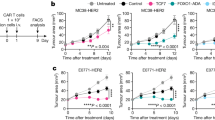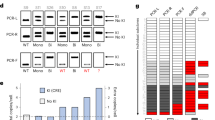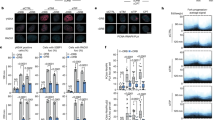Abstract
In this study, we compared the relative abilities of human thymidylate synthase (hTS) and Escherichia coli thymidylate synthase (eTS) expression to confer resistance to the cytotoxic effects of treatment with the TS inhibitor 5-fluorodeoxyuridine (FdUrd). G418-selected clones expressing either form of the protein were significantly more resistant than the lacZ-expressing clone, VALZ2, to FdUrd-induced cytotoxicity. Although eTS-expressing clones expressed 2- to 3-fold more TS protein than hTS-overexpressing clones, the representative eTS-expressing clone, VAEG8, and hTS-overexpressing clone, VAHGC, were equally sensitive to an FdUrd-induced loss of clonogenicity; in addition, a large fraction of either form of exogenously expressed TS appeared to be inactive in the intact cell. The clones differed, however, in their responses to leucovorin (LV). Although LV significantly enhanced FdUrd-induced TS inhibition, growth inhibition, and cytotoxicity in VAHGC cells, it had no effect on these parameters in VAEG8 cells. These results suggest that eTS may more efficiently confer resistance to FdUrd plus LV when expressed for the purposes of a “host protection” strategy in vivo.
This is a preview of subscription content, access via your institution
Access options
Subscribe to this journal
Receive 12 print issues and online access
$259.00 per year
only $21.58 per issue
Buy this article
- Purchase on Springer Link
- Instant access to full article PDF
Prices may be subject to local taxes which are calculated during checkout
Similar content being viewed by others
Author information
Authors and Affiliations
Rights and permissions
About this article
Cite this article
Parsels, L., Kowalski, M., Wagner, L. et al. Escherichia coli thymidylate synthase expression protects human cells from the cytotoxic effects of 5-fluorodeoxyuridine more effectively than human thymidylate synthase overexpression. Cancer Gene Ther 7, 1179–1187 (2000). https://doi.org/10.1038/sj.cgt.7700221
Received:
Accepted:
Published:
Issue Date:
DOI: https://doi.org/10.1038/sj.cgt.7700221



